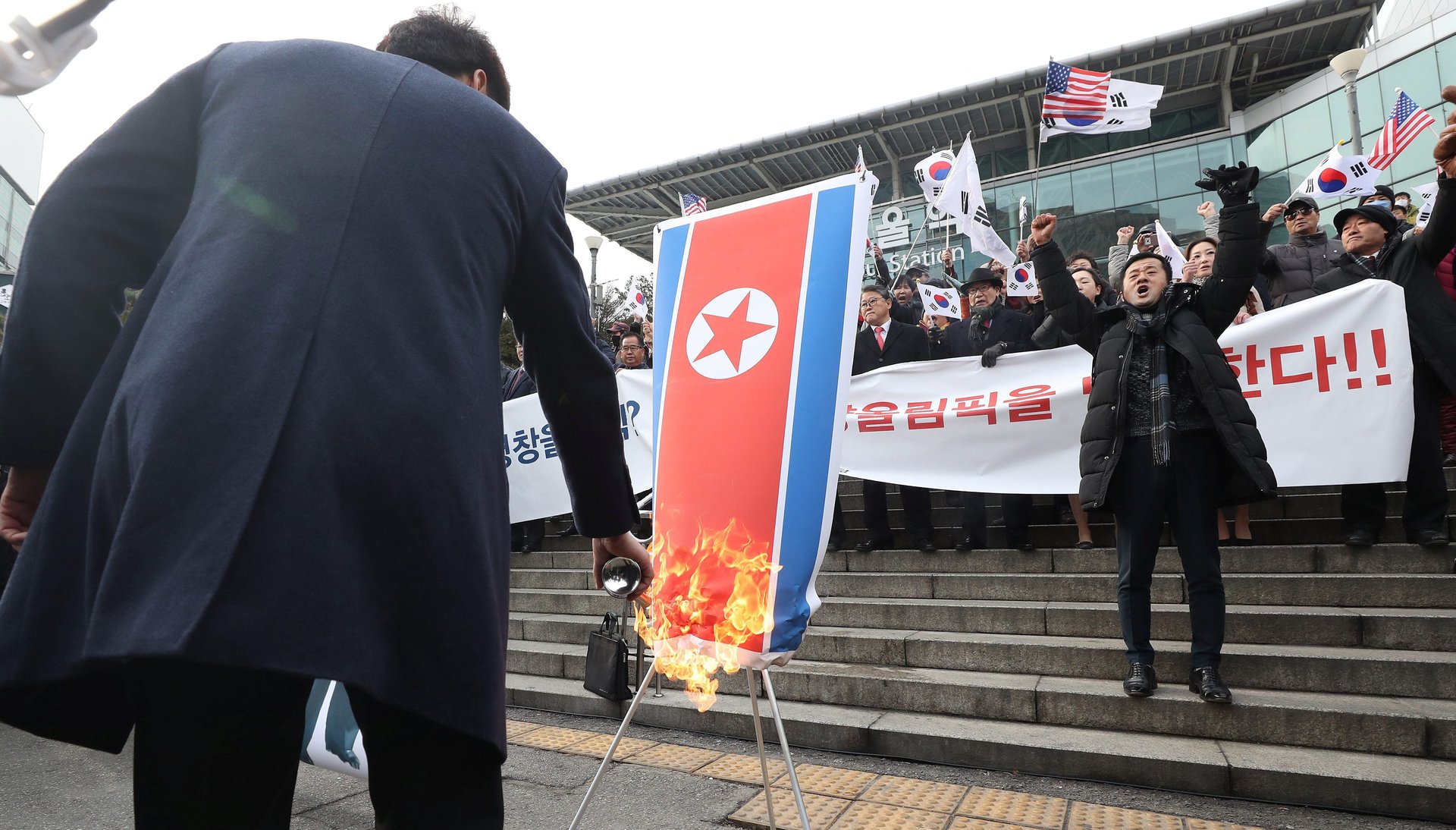North Korea is holding a military parade the day before the Winter Olympics opens
As South Korea readies for the opening ceremony of the Winter Olympics in Pyeongchang Friday (Feb. 9), its northern neighbor has been planning a spectacle of a very different kind just 300 km (186 miles) away.


As South Korea readies for the opening ceremony of the Winter Olympics in Pyeongchang Friday (Feb. 9), its northern neighbor has been planning a spectacle of a very different kind just 300 km (186 miles) away.
North Korea’s official news agency said last month (Jan. 23) that it will mark Feb. 8 as Army-Building Day, the official anniversary of the Korean People’s Army—an event previously celebrated on April 25. South Korea said earlier that it had detected signs that North Korea was mobilizing around 13,000 troops and 200 pieces of equipment near an airport in Pyongyang for what could be a military parade rehearsal.
According to NK News, the last time Feb. 8 was used to mark the army anniversary was 1977, after which the date was changed to April 25.
Pyongyang’s announcement came as the two countries are moving full steam ahead with a detente ahead of the Olympics, which will now include performances by North and South Korea in each other’s countries, a joint women’s hockey team, and the two sides marching together under a unification flag at the games.
But the detente, much to the Seoul government’s chagrin, hasn’t exactly been met with unadulterated support in South Korea. The optics of North Korea holding a military parade just a day before the Winter Olympics opening ceremony isn’t likely to boost support for the diplomatic efforts, either. Many South Koreans are already questioning the extent to which the country is accommodating its bellicose neighbor for the Olympics, with its female hockey team, for example, being forced to play with North Korean players. Discontent toward the government’s Olympics diplomacy has helped push the popularity of president Moon Jae-in to an all-time low—until now, he had been registering approval ratings of 70% or above with near-idol status in the country.
Meanwhile, the South Korean government is sticking to its message that the public, including politicians and the media, should get behind the Olympics detente efforts. As some protesters in Seoul in January burned images of North Korean leader Kim Jong-un and the North Korean flag, president Moon emphasized the fragility and rarity of the current diplomatic breakthrough, and implored South Koreans to “show their support in maintaining and expanding the dialog as they will protect a candle in the wind.” Another unnamed South Korean official, the Hankyoreh newspaper reported, said that he “would like it if people looked at the larger ‘forest’ here, which is that we’re heading toward the ‘Peace Olympics’ we were hoping for.”